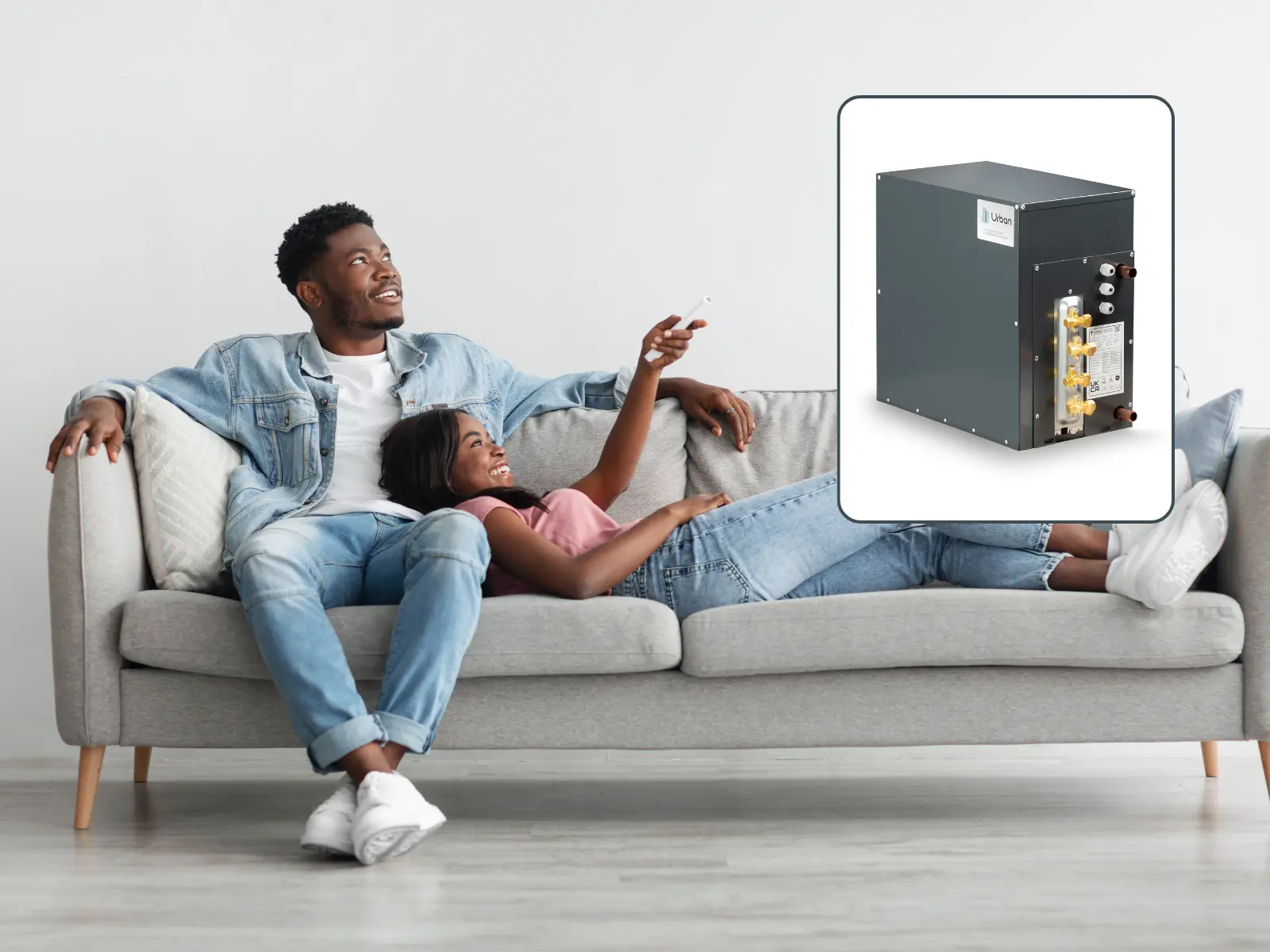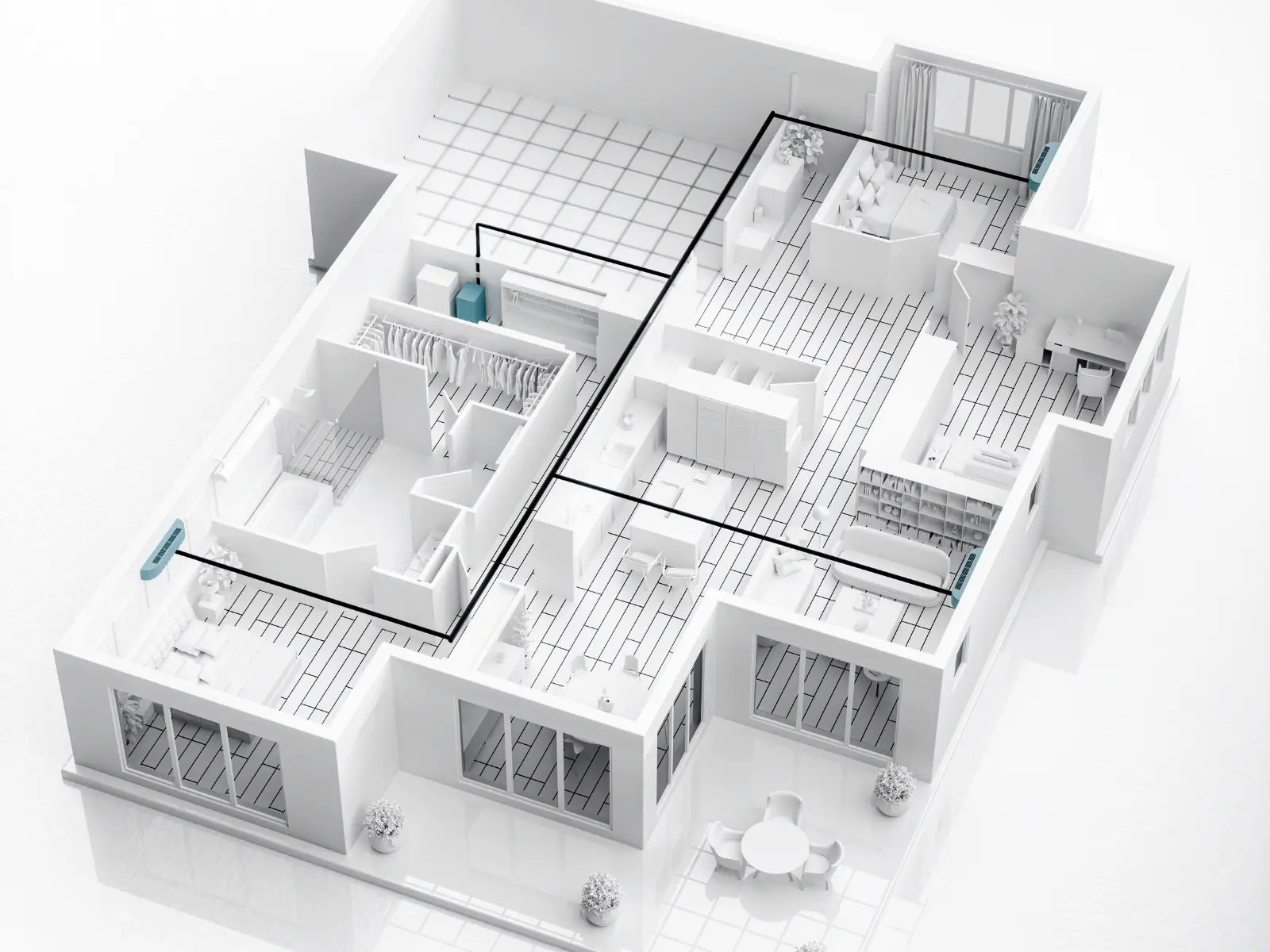Keeping your home at a comfortable temperature throughout the year can be a constant struggle. During the summer months, high levels of insulation can leave you feeling stifled while the cold UK winters can mean you’re reaching for a blanket throughout winter.
The best way to get through every season in comfort is to keep your home at a constant temperature. This helps you to avoi9d feeling too hot or too cold while also looking after your health and wellbeing – as well as making it easier to concentrate throughout the day.
To achieve this, you need to know the best ways to heat and cool your home throughout the year, as well as understand how and why the temperature might fluctuate on any given day.
Hot Air Rises And Cold Air Sinks
We all know that hot air rises, but understanding why this happens can help you better maintain the temperature of your home.
Essentially, hot air follows cold air – which is exactly why you shouldn’t keep your windows open in summer while your air conditioning is turned on. If you open your windows while you’re trying to cool your home with air conditioning, the hot air from outside will simply follow the cool air in, so you’ll still feel too warm.
The heat rising is also why the upper floors of an apartment building will feel warmer than those below, especially if apartments below have their heating on. This can mean that upper apartments still feel too warm during winter and that residents will feel the cold more when they go outside.
How Does Heat Rising and Cold Sinking Affect Your Home?
This transfer of hot and cold air affects your home in a few ways. To start with, the warm air in your home will move upwards and escape from your room, which is exactly why loft insulation is needed. Without good levels of insulation, this can mean that your house never feels warm even when the heating is on constantly.
The hot air rising isn’t the only thing that affects the temperature of your home though. Cold air gets drawn into your home from the outside, especially from the bottom, through cracks, leaks, gaps and windows. This can be made worse by wind, which causes pressure on one side of your home that forces cold air through more.
All of this means that maintaining a constant temperature on different floors of your home and even in different rooms, can be a challenge. So what can you do to better heat and cool your home throughout the year?
How To Heat Your Home Effectively
Winters in the UK can get incredibly cold. Many people simply turn their heating on and keep their homes that way. However, this can be expensive and inefficient if warm air is leaking or you are still allowing cold air in.
Ensuring you are doing everything you can to keep your home warm will make the most of your heating when it’s on, as well as reduce your energy bills.
Don't Block Your Radiators
Putting your sofa or other furniture up against your radiators may help with the layout of a room, but it isn’t helping to keep you warm. If you move furniture away from your radiators, it will help the hot air circulate more freely so the whole room feels warmer.
Similarly, hanging curtains over your radiator or putting clothes directly on it to dry them stops the heat from filling the whole room. Make sure curtains don’t hang over the top of radiators and use clothes airers close to radiators so you better benefit from the heat source.
Stop Draughts
Draught-proofing your home can make it feel much warmer and is fairly easy to do. Besides the traditional draught excluders you buy, self-adhesive rubber seals can be used around doors and windows, which are common causes of draughts.
You may also find that draughts come in via cracks on your floor or between floorboards. This can mean that sealing your floor correctly or installing underlay, thick carpets or rugs can make a big difference. It also pays to keep internal doors shut to stop draughts coming in from other rooms.
Turn Down Your Heating
This may sound counter-intuitive but turning down your heating will help you feel the cold less while also costing you less on your energy bills. Public Health England suggests setting your heating to 18°C, which gives you a comfortable baseline temperature, especially if you stop draughts.
Even better, reducing your heating temperature by 1°C can save you up to 10% on your heating bill, so it’s worth turning it down and popping a jumper on.
Check Your Insulation
Around 25% of your heating is lost through your roof as heat rises. This is why you should check that your attic has at least 25cm of insulation and that there are no gaps in the insulation.
Getting into the habit of checking your insulation at the start of the winter season and adding more or replacing it if necessary can make a huge difference to how warm your home is. Similarly, making sure you have wall insulation can save you hundreds a year on heating bills so is worth the investment.
How to Cool Your Home Effectively
While added insulation and other heat-saving tricks are helpful in the winter, they can leave houses feeling the heat when the summer comes along. Homes in the UK are built for withstanding cold temperatures, so when we’re hit by a heatwave, it can be quite unbearable.
Luckily, there are also ways you can cool your home easily.
Close Your Curtains
You may want to enjoy the sunshine, but opening your curtains means the sunlight will heat your home. On hot days, it is a good idea to keep windows and blinds closed to keep out the glare and leave your home feeling a bit cooler.
Shade Your Home
Adding shade to your home can help to block out the heat while still allowing you to get sunlight during the winter months. Adding external coverings to shade your walls and windows can help stop the sun from heating your home too much and leave you feeling more comfortable.
Awnings, trees that cast a shadow over your home and even large potted plants outside can all help to keep your home feeling cooler.
Open Your House At Night
It’s a good idea to keep windows shut during the day to stop warm air from getting inside, but when it gets cooler in the evenings, you should open your house up a bit. Doing this will allow natural cold air to get inside and help your house feel cooler. Just make sure your house is secure overnight to avoid break-ins.
Use Air Conditioning Instead Of Fans
Fans and air conditioning are not the same thing and don’t work in the same way. While fans can help you feel cooler by moving air over your skin, they just move the air around and don’t cool it. This can mean that you end up wasting electricity on a solution that doesn’t help you beat the heat.
In contrast, air conditioning cools the air that it blows out, actively reducing the heat in your home. This can make warm days a lot more bearable and help you sleep better at night. You also have full control over the temperature of your aircon, with modern systems utilising apps that allow you to change the temperature even when you aren’t at home.
Our water-cooled air conditioning systems are fully internal so you don’t need to have an external compressor installed. This means they are suitable for all property types, including apartments, listed buildings and homes in conservation areas.













.webp)
.jpg)






-min.avif)

.avif)
.avif)






.avif)

.webp)













